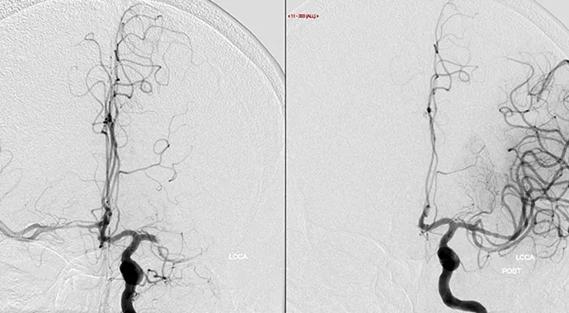
Aim is for use with clinician oversight to make screening safer and more efficient

Anatomical modeling can identify optimal surgical candidates, study suggests

Innovative approach to the procedure can yield significant relief in complex cases

A passionate specialist surveys the field’s past, present and future
Advertisement
Cleveland Clinic is a non-profit academic medical center. Advertising on our site helps support our mission. We do not endorse non-Cleveland Clinic products or services. Policy

Case illustrates essentials of the low-risk, high-potential procedure when paired with rehab

Increasing treatment options are extending the window for continued functional gains

Evolving thinking on when and how to treat brain aneurysms and AVMs

Dr. Amre Nouh shares priorities and insights on issues facing the stroke community

Results may refine surgical selection criteria and advance clinical trial design

Study links large artery atherosclerosis and delayed presentation to poorer treatment results
Advertisement
Advertisement